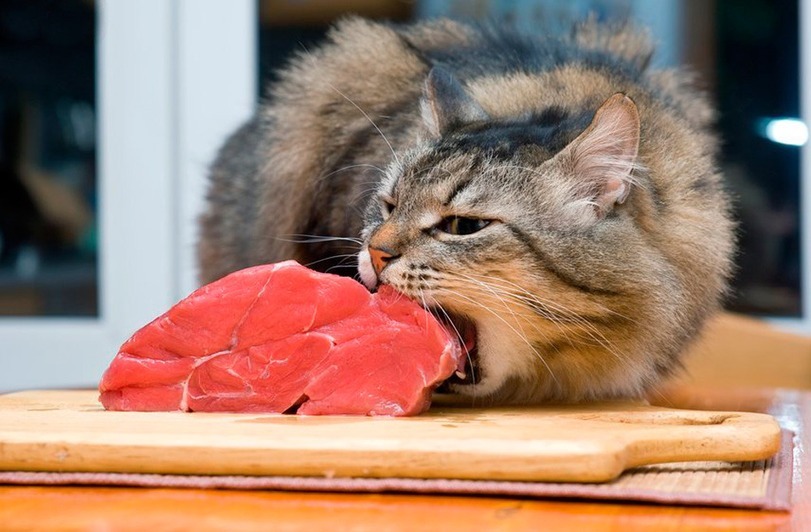“No matter how one may think himself accomplished, when he sets out to learn a new language, science, or the bicycle, he has entered a new realm as truly as if he were a child newly born into the world.”
A Wheel Within a Wheel: How I Learned to Ride the Bicycle
by Frances Willard
What's For Dinner?
Back when I was a whiny little tyke, I used to annoy my parents by continually asking what was for dinner. (Not repeatedly on the same day – I may have been whiny but I wasn’t stupid.)
“What’s for tea?” the little Deborah would inquire, a glitter in her childish eye, and her parents, sensing an imminent chapter from that well-known collection of essays, Things I Do Not Like to Eat, would fall back on that stand-by of parents through the ages: “Wait and see.”
It has become generally accepted to blame the problems of one’s adult life upon one’s upbringing, and it has just occurred to me that this three word refrain might be to blame for my lack of organization when it comes to figuring out what the evening meal will be. Because deep deep down, my sub-conscious thinks that you don’t know what’s for dinner until dinnertime arrives. This may explain the scrambled egg incident.
Of course, this theory only danced across my mind for a handful of moments before the hound of reality came galloping after and savaged the poor little thing to shreds. Because I was still by all measures a child when my parents started me learning to cook the evening meal, which includes planning ahead and getting something out of the freezer in time for it to defrost.
Mind you, I grew up a handful of degrees south of the Equator, where meat could be removed from the freezer at lunch-time and be completely thawed by five o’clock. (I was thirteen before I encountered butter that had been left out of the fridge overnight, but was still too cold to spread, and I didn’t know what to do with it.) I now live closer to 42 degrees south, and lunch-time doesn’t cut it as far as defrosting goes, particularly in winter. Breakfast-time is more like it, and if it’s something large, better make it breakfast-time the day before.
One could of course use a microwave to defrost food, but the results are unsatisfactorily uneven, and in any case why pay for electricity to do what time and nature will do for free? This is not to say that the microwave plays no part in defrosting: we use it all the time. As a cat-proof meat safe.
I am sure I am not the only one who has struggled with the daily task of organizing food on the table. It was worse when I was still working at the DDJ, leaving the house before I was fully awake and returning when I was tired and the need for dinner was imminent. The Caped Gooseberry did his best, but multi-variable decision-making and chronic fatigue do not mix.
We ate some very simple meals in those days. As Julia Child said, “Good French cooking cannot be produced by a zombie cook.”
But rejoice! there is still hope for us. Some time ago (on the website of the Daily Connoisseur, I think) I came across the idea of the capsule menu. Some of you may be familiar with the idea of the capsule wardobe: a small but effective collection of clothes that you can just wear without having to spend ages thinking about what to wear or what goes with what.
The capsule menu is similar. Basically it’s a schedule of what you’re going to eat on what day. You shop accordingly and voilà, the decision is already made and you don’t have to spend ages figuring out what you have and what you can make out of it. Bliss.
If you have a high boredom threshold, you can have the same menu every week. We have a two-week cycle, which includes such gems as “home-made curry” “spaghetti bolognese” “something eggy” “something from a cookbook” (variety: the spice of life) and a couple of nights where we get takeaways: a curry, or the traditional NZ fish & chips.
A particular favourite of mine is the four days we spend working our way through a roast or a corned beef. We buy whatever’s cheap at the supermarket (oddly, roasts are frequently as cheap or cheaper than even mince), cook it up, and then have the leftovers in various ways until they are all gone. What could be nicer than a chicken roasted with homemade stuffing, or a shoulder of pork with rosemary crackling? Served (of course) with roasted potatoes and lashings of flavourful gravy.
Planning ahead also means that you can make sure you are going to get a balanced diet, time constraints are taken into account, and everyone in the house can be assured that their favourite foods will appear regularly. (If it was up to the Caped Gooseberry, we’d have rice nearly every night.)
Have you tried a capsule menu? Did it work for you? What dishes did you decide to have? And what’s for dinner?
What Does Clean Mean?
The bathroom, I have been told, is an excellent place to think.
I tend to find the cleaning of the bathroom is most conducive to reflective thought (something to do with the purgative aspect?) and today was no exception. I started to ponder the difference between people’s standards of cleanliness. Not changing standards of personal cleanliness throughout history (though I have read some fascinating books on the subject) but rather domestic cleanliness.
I think we all, consciously or unconsciously, have a gold standard of what constitutes cleanliness, without which a home cannot be considered a truly clean one, regardless of what else has been cleaned.
For some, it’s a clean sink, à la FlyLady. For others, it’s the dishes that get washed in said sink. Or swept/mopped/scrubbed/vacuumed floors. Or a clean fridge. I have a friend who feels it is important to dust the skirting boards.
I realized, as I worked away this morning, that for me, the most important thing is having a clean toilet and basin. If that is not done, the house is not clean. If that is done, the house is – well, not dirty.
I think this probably stems from my childhood experience of Saturday cleaning. On which note, Saturday is the day for weekly housework. Five days shalt thou labour, on the sixth shalt thou do housework and on the seventh shalt thou rest. Of course, if thou dost not do the housework on the Sixth Day, thou dost not have to do it until next Saturday…
At the age of seven, I was started on bathroom cleaning and dishes – my parents being of the view that by the time you leave home you should know how to run one.
Dividing the bathroom territory up with my brother, I went for the smallest possible surface area and ended up with the basin and toilet. (To this day, I avoid bath-cleaning where possible.)
Many years of doing these two chores has ingrained in my mind the subconscious belief that once the toilet and basin are clean, my job is done.
Of course, this is no longer the case, so perhaps it would be as well if I got some sort of mental cleaning product and had a good scrub between the ears.
What’s your sine qua non of household cleanliness – and do you know why?









